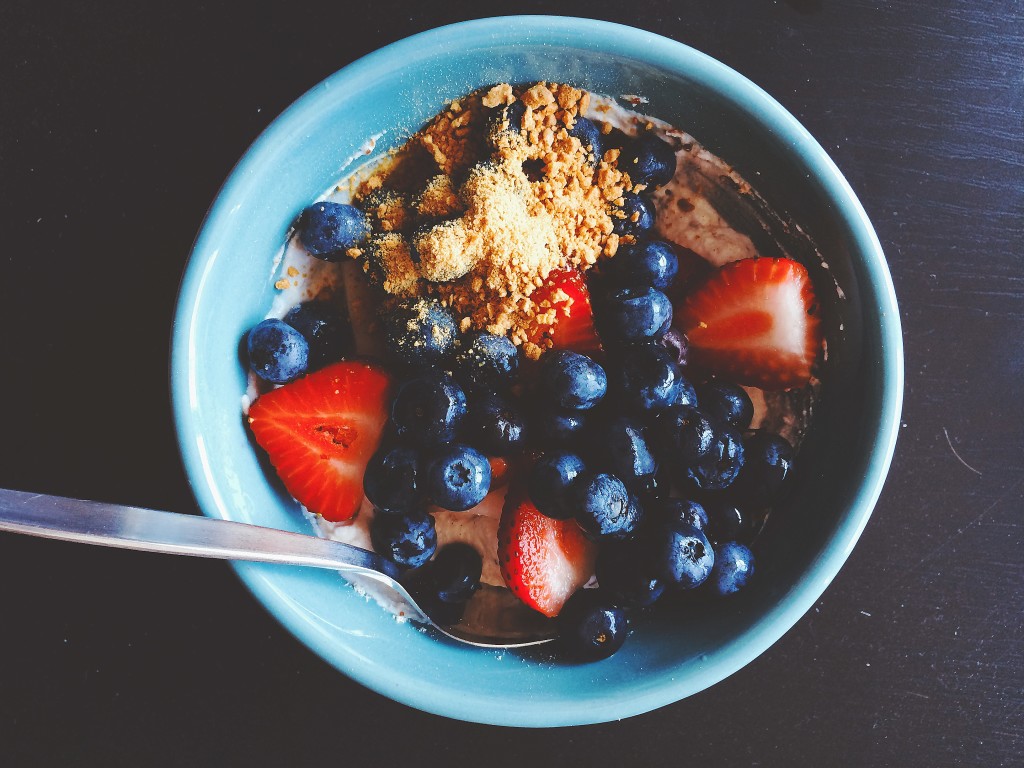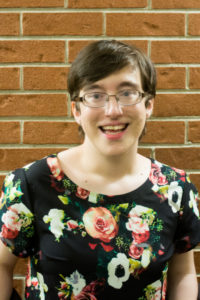You guys know I love shining the spotlight on other people in the wellness world doing, and today I’m happy to showcase dietitian Tracy Williams on a super-important topic. An advocate for diversity and for people with disabilities, she herself has cerebral palsy. I’m excited to share her tips for helping people with disabilities live a healthy, positive life. Take it away, Tracy!
According to the 2010 U.S. Census, 19% of the U.S people are considered to be living with any level of a disability, either learning, developmental or intellectual disability. All kids and adults living with disabilities have a unique journey towards living independently compared to kids and adults living without disabilities. Not every person with the same disability or condition lives the same life either. It is important to teach people living with disabilities most importantly that life is not a competition. Anyone, living with disability, as well as without disability, wants to find balance in life. People living with disabilities just need to find in a unique way to find balance in their life. People living with disabilities need to find unique ways to eat nutritious foods, cook independently, as well as participating in adaptive sports and fitness as well as spending time with supportive friends and family.
Basic Nutrition and Easy Meals
- Fluids: 6-8 cups daily; water, coffee, 100% fruit juice, low-fat or fat-free milk, kefir
- Sandwich: turkey or ham with Swiss or Provolone cheese, as well as spinach and sliced tomatoes
- Skillet: brown rice or whole grain pasta, grilled or sautéed veggies, feta or blue cheese, skirt steak or chicken strips
- Salads: Spinach or arugula, seedless purple grapes, cooked lentils, and vinaigrette
- Smoothie: Greek yogurt, almond milk, frozen fruit, 100% fruit juice in blender
- Parfait, Greek yogurt, Chex cereal, fresh or frozen fruit, and chopped nuts
- Frozen meals: aim for 250-300 calorie range, less than 4 grams of saturated fat, less than 800 mg of sodium, 3-5 grams of fiber
Adaptive Cooking
- A support system for assistance in learning process: family members, spouses or significant others, close friends and trusted occupational therapist
- Creativity, imagination, resilience, and continuous motivation are needed to be successful
- Every kitchen gadget can be used in a creative way; not all tools or gadgets need to be used in the traditional way
- Kitchen tools should be placed in the same way each time, within an arm’s length reach
- Be aware of individual ability of sensation, motor control or balance may have to incorporate additional tools and strategies
- Each individual with a disability may need bake cookies and cupcakes in a smaller quantities to make baking trays lighters and easier to lift while possibly using a wheelchair or other mobility device
- Each individual with a disability who happens to use a wheelchair or other mobility device may need to use lowered counters with enough navigation space for using a power or manual wheelchair
Adaptive Fitness and Sports
- People living with disabilities may consider participating in adaptive sports programs with the assistance of instructors from park districts or adaptive recreation association
- People living with disabilities may consider building a fitness plan with the assistance of a physical therapist. Not every personal trainer has the unique experience working with clients who live with disabilities
- Clients can consider bringing therabands, dumbbells, ankle weights, wrist weights, as well as using the resistance of their individual body weight
- Research classes related to specific health diagnosis; add physical activity while having a support group where individuals can learn from each other and each person’s life experience
- Depending on class size, an instructor may be able to adapt a typical fitness class to the needs of someone living with a disability
- Fitness centers could possibly waive monthly payments if a client cannot attend a fitness center on a weekly basis due to health needs or potential surgical procedures
Social Support and Friendship
- Majority of people with disabilities like to build friendships with people who have similar interests; not every friendship is built with another person living with a disability
- Some people with disabilities need to be creative in how they advocate for their potential physical needs.
- Sometimes people living with disabilities get frustrated related to weaknesses rather than other people focusing on individual strengths.
- Everyone can ask for help and not be ashamed for asking for help.
- Social support from friends and family might aid in social misconceptions surrounding people living with disabilities.
- Many people with disabilities actively combat stigma and negative perception either externally in the world or internally within each individual.
- Teens and young adults, with or without disabilities should feel social support to build the tools to accept their individual bodies and realize higher and healthier self confidence
- Emotional support can be found through many ways, such as confiding in a trusted friend or family member, talking with personal doctor, or by calling a counseling center.
People living with disabilities just need to find in a unique way to find balance in their life, such as unique ways to eat nutritious foods, cooking independently, as well as participating in fitness and spending time with supportive friends and family.
Thank you, Tracy!
Tracy Williams has her degree in Nutrition and Dietetics from Dominican University. She enjoys public speaking and freelance writing and blogging. You can connect with her at www.tracysplate.com. She spoke at the Abilities Expo in June 2017 in suburban Chicago. The topic was adaptive cooking, nutrition concerns and adaptive fitness for young adults with disabilities. She is a five time recipient of nutrition education grants from the Academy of Nutrition and Dietetics Foundation. She enjoys speaking at schools, rotary clubs, park districts, churches and nonprofit organizations in suburban Chicago. You can contact her through her website as well as [email protected]. She is a strong advocate for the diversity of our nation and world, especially for people with disabilities, since she has cerebral palsy.
***
This has been another installment of the Running with Spoons Thinking Out Loud link party, where randomness is the name of the game. Thanks to Amanda for hosting.


